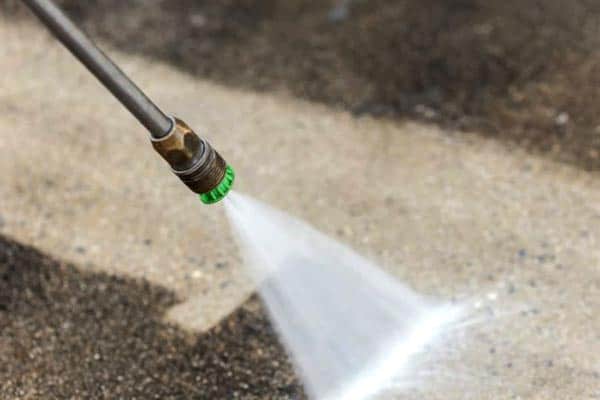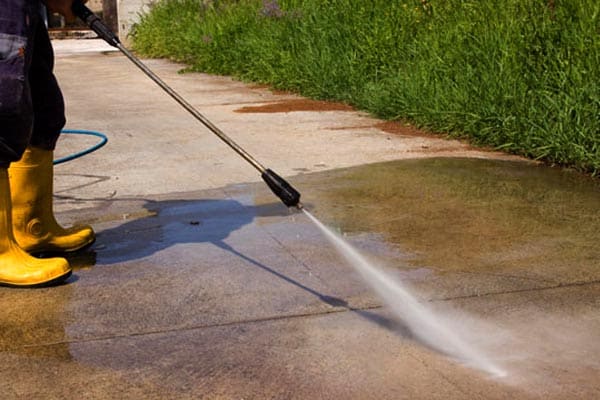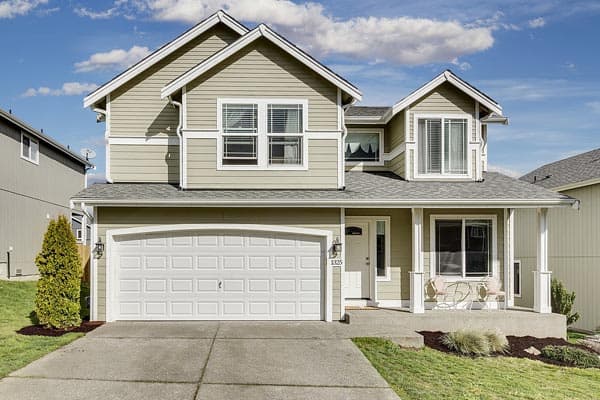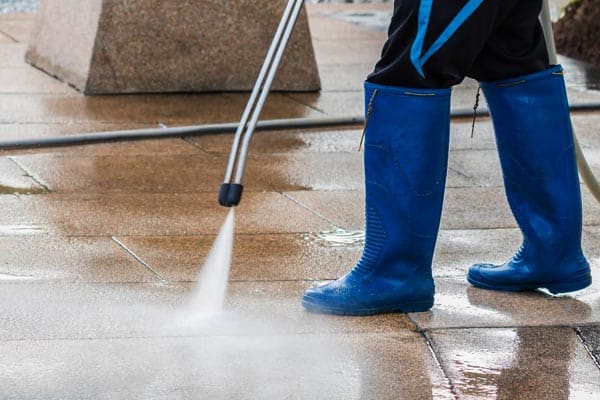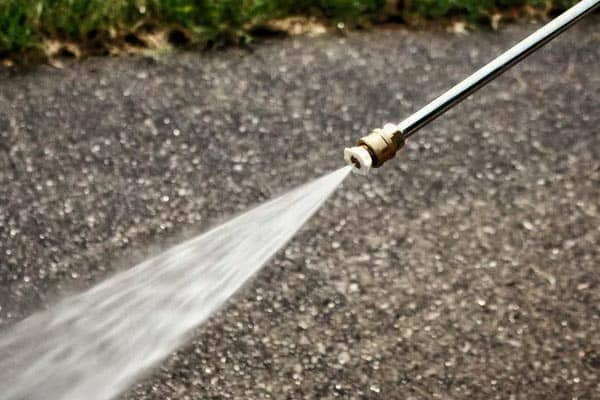How to Figure Out Which Size Pressure Washer You Need for Your Projects
If you’re looking at purchasing a pressure washer, you’re more likely wondering what size you need.
You want to do your research and ensure that you’re getting the correct PSI for your intended projects, and it’s definitely not a one-size-fits-all scenario.
Since this can be confusing to people who are brand new to the world of pressure washers, we’re here to help.
To start, there are a few key pieces you want to consider when you’re figuring out which size pressure washer you need.
You can choose from low, middle, or high-end pressure, and it all depends on what you want to use your pressure washer on, how deep the stains are, and how large the project is.
We’re going to break this answer down into manageable parts, and you can use this guide to figure out exactly what size pressure washer you need to get clean and finished surfaces around your home or business.
Understanding PSI
PSI is short for pounds per square inch, and it’s a measurement of pressure. PSI measures the amount of cleaning force that a pressure washer is capable of producing when you switch it on. Whatever PSI rating your machine has will indicate how powerful of a water stream it will produce.
So, it makes sense that a pressure washer with a higher PSI rating will offer a greater power output, and a lower PSI rating will have less power, but they’re still capable of taking on light-duty projects around your house like cleaning off the deck or walkways around your home.
Plan What You’ll Use Your Pressure Washer For
It sounds funny, but one of the biggest considerations that you should keep in mind when you’re figuring out which pressure washer you need is what you intend to use it for.
The goal is to pick out a pressure washer that is powerful enough to complete your set project or projects without being so powerful that it causes damage to the items you want to pressure wash.
For example, electric pressure washers are excellent for lower-power projects like cleaning outdoor furniture, patios, and vehicles, while gas pressure washers are suited for both residential projects and large-scale industrial cleaning projects.
Gas pressure washers offer more power, and they’re suitable for cleaning sidewalks, house or building siding, construction equipment, fleet vehicles, and other industrial equipment. Diesel-powered pressure washers are typically reserved for bigger industrial applications like construction and manufacturing.
So, make a list of the projects you want to accomplish with your pressure washer to give you a rough estimate on the PSI you need in your machine as the first step of the buying process.
Figuring Out How Much Pressure You Need
The amount of pressure you ultimately need in your new machine will determine which category your consumer pressure washer falls into.
For example, you could only need a lower-end product for very small and lightweight tasks around the house, or you could need one that is capable of more output, and this is a higher-end model. Of course, the prices will start to go up as you get into the more powerful models, but they can be necessary
Lower-End Electric Pressure Washers
The low end for pressure washer power ratings typically involves machines that have a maximum PSI range of 1,000 to 1,900. Since they’re on the lower end for power, you can typically find them classified as residential or consumer pressure washers.
Most of these options are electric in their design, so they’re not suited to work in wet conditions due to the increased risk of shorting out or shocking you.
Even though these models are on the smaller end and offer the lowest PSI rating, they’re nice to have for easy, infrequent cleaning projects around your house.
This size is good for a few different short-term projects where you’re worried about cosmetic damage, and the potential projects include but are not limited to:
- Clean the shutters
- Wash the car
- Take dirt off patio furniture
- Brighten up your grill
- Clean bicycles or scooters
Middle-End Gas or Electric Pressure Washers
The next tier up for pressure washers is the middle-end range in both gas or electric designs. This machine puts out a moderate amount of pressure at 2,000 to 2,900 PSI at the maximum level, and they all come consumer-rated for use around your home.
You do want to be more careful with this option as it can cause damage to the surface of items if you turn it all of the ways up when you use it, like chipping paint off your vehicle.
This strength pressure washer can easily handle everything that a lower-end model can on the lowest setting, and you also get the bonus that it can take your cleaning power another step further.
They work well for common cleaning projects around your house that fall into the medium or heavy-duty categories.
You can use this strength pressure washer on:
- Cleaning off the deck
- Cleaning cedar fences
- Brightening up grills
- Cleaning off docks
- Cleaning bikes or scooters (risk of chipping paint)
- Cleaning vehicles (risk of chipping paint)
High-End Gas Pressure Washers
The higher-end models are typically all gas, and they offer PSI ratings of 3,000 to 6,000 and up. This is the category where you start getting into the professional or commercial-grade machines that can take on large-scale, difficult projects. When you consider the sheer amount of pressure they put out, it makes sense why they need gas to power them over electricity.
You want to avoid using this model on medium or light jobs around your house because you’re almost certainly going to cause a large amount of damage if you don’t use them correctly.
The pressure rating on these machines means that you can use them in commercial or residential areas, and it’s a good choice if you need to take on the following heavy-duty projects:
- Stripping graffiti or paint
- Scrubbing mildew or mold
- Cleaning boats
- Cleaning asphalt driveways
- Cleaning industrial equipment
Understanding the Difference Between Gas and Electric Machines
When you start shopping for a new pressure washer, remember that it’s always a good idea to stay with the size you absolutely need rather than going for a more powerful model simply because you think you’ll do better with a gas model over an electric one.
Power isn’t everything, especially when you’re dealing with a machine that can very easily cause a lot of damage to your items if you get the wrong one.
Generally speaking, the higher your machine’s PSI rating is, the higher the price will be. A lot of this boils down to the fact that most pressure washers with lower PSI ratings that are meant for light-duty projects come with an electric motor. Electric machines are easier on the wallet, and they’re also user-friendly, operate quietly, and they’re lightweight.
However, most of them aren’t mobile. This fact makes them best suited for simple projects you do once or twice a year where you don’t need to move the pressure washer around to finish the project, like cleaning a grill.
You’ll notice that those with higher PSI ratings rely on fuel to power it, and most gas models will give you much better mobility that allows you to bring it from project to project.
For example, if you need to clean your sidewalk or driveway before moving to clean your house’s siding, this is the model that is going to make these projects seamless. However, both the maintenance prices and the original cost will go up as the PSI rises.
Factoring in Gallons Per Minute
Don’t forget to factor in the gallons per minute your pressure washer puts out when you’re looking at the PSI rating on your pressure washer.
The water pressure is the thing that allows the machine to break up any settled-in dirt or stains, and the water volume is the thing that will flush away your debris or broken-up particles.
This measure works right alongside the PSI, and it refers to the process of measuring the water volume that’s streaming through your machine when it’s running.
The PSI is responsible for the cleaning portion of the project, and the GPM will allow you to clean faster. So, when the two things work together, you get the best cleaning power possible to complete your project.
If you’re looking for the total cleaning power of a machine, all you have to do is multiply your PSI rating by the GPM. You’ll find the GPM labeled as cleaning units on your pressure washer, and it typically gets abbreviated to CU. So, say your pressure washer is 3 GPM and 1,500 PSI. It’ll give you a total cleaning unit of 4,500.
For another example, your pressure washer could have a 2,200 PSI rating and a 1.8 GPM rating. This will give you a total CU of 3,960.
So, this means that a pressure washer with a lower PSI rating could actually clean much faster than one with a higher PSI rating, depending on the machine’s total cleaning units.
The more water that streams through the nozzle in 60 seconds, the quicker you’ll be able to finish the project. A greater GPM rating allows you to clean faster because it has more flowing water present to lift off the dirt and sweep it away as you move through your project.
So, make sure you always keep the PSI rating and the GPM in mind when you’re figuring out which size pressure washer you need to help you finish your cleaning tasks.
Tips for Choosing a Pressure Washer Size
There are a few tips you can use to help you narrow down your final choice for your pressure washer size. Keep them in mind when you shop to ensure you don’t get too much power or too little.
1. Usage
How often do you plan to use your pressure washer? If your time exceeds 100 hours every year, you might want to go for a commercial-grade model. Ideally, you’ll need to use this machine at least twice a week to warrant a purchase of this more powerful machine.
2. Power Access for Your Machine
Pressure washers can use gas, electricity, hydraulic power, or diesel to run. You’ll typically see hydraulic power in machines used for agricultural or mining projects.
Diesel fuel is popular in heavy-duty machines for commercial use.
Gas pressure washers are nice if you need more power or if your projects are in areas where you can’t access electricity.
Electric machines are one of the most convenient because all you’ll need is access to an electrical outlet, but they’re also the lowest power levels.
3. Need for Hot Water
A lot of pressure washers require cold water to run, but some projects can require the use of hot water. If this is the case, look for a model that offers a heating coil.
For example, you may need a machine with hot water capabilities if you plan to use it to clean or sanitize animal cages. The heating coil gives you hot water to finish your project, but these units tend to be on the heavier side and require fuel to operate like gas or diesel.
Bottom Line
There are many variables that go into deciding what size and strength pressure washer you need. Always consider what you want to use it for, and don’t get a more powerful unit than you absolutely need to have.
Not only is it a waste of money to do so, but it also increases the risk that you’ll accidentally damage something as you finish your projects. Get the correct machine, and you can fly through your projects without any complications.
